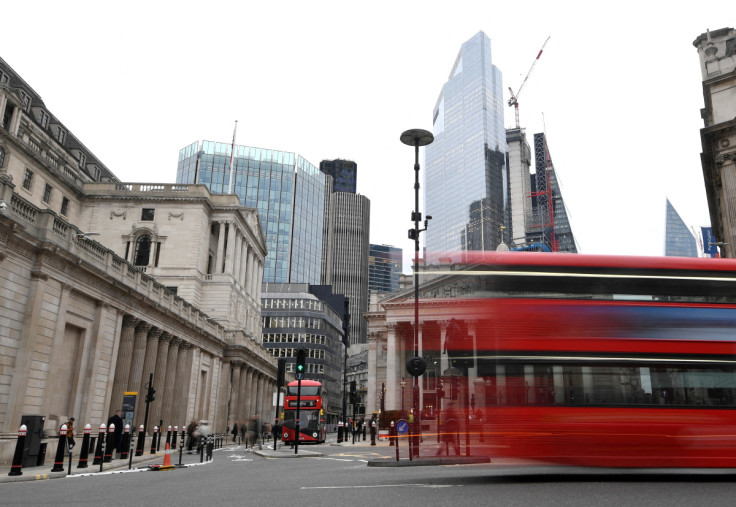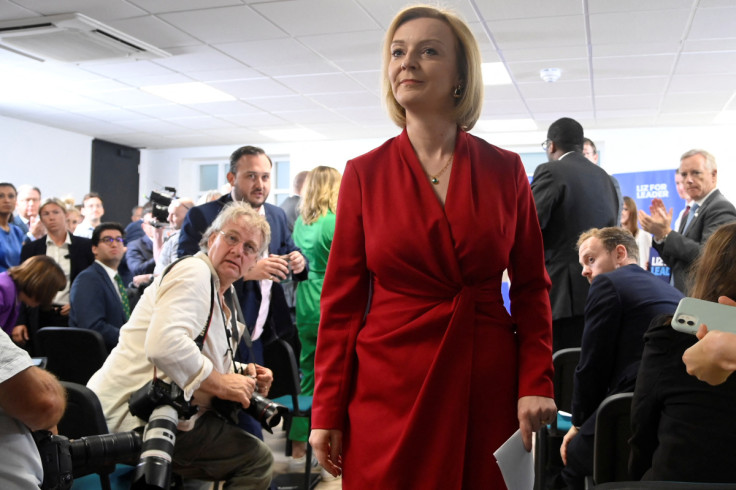Leave our policy alone, Bank of England official tells UK conservatives
A top Bank of England official pushed back on Monday at suggestions from a leading candidate to become Britain's next prime minister that the government should set a "clear direction of travel" for monetary policy.

A top Bank of England official pushed back on Monday at suggestions from a leading candidate to become Britain's next prime minister that the government should set a "clear direction of travel" for monetary policy.
Michael Saunders, one of nine members of the interest rate-setting Monetary Policy Committee, said the foundations of Britain's monetary policy framework were best left untouched by candidates to lead the Conservative Party.
Since 1997 the BoE has had "operational independence" to change interest rates as it sees fit to meet an inflation target set by the government which does not generally comment on monetary policy.
However, Foreign Secretary Liz Truss, one of the front-runners to succeed Boris Johnson, at the weekend said she wanted to look again at the BoE's mandate to "make sure it is tough enough on inflation," and would "set a clear direction of travel" on monetary policy.
Kemi Badenoch, a former equalities minister who is also standing to be Britain's next prime minister, has also said the BoE had been insufficiently scrutinised by government at a time when inflation of 9.1% is far above its 2% target.
Saunders said greater government involvement would make it harder, not easier, for the BoE to control inflation.
"The foundations of the UK monetary policy framework, I think, are really important and best left untouched," Saunders said at a Resolution Foundation event in London.
"The government very clearly does not set the direction of travel for monetary policy," he added.
Saunders said Britain's monetary policy credibility was at stake. He was speaking in a question-and-answer session after a speech - his last before stepping down next month - in which he said interest rates could top 2% in a year.
"The MPC's ability to loosen monetary policy promptly and effectively during the recession of 2008-09 and during the pandemic ... rests on the credibility of that policy framework."
Saunders also said a greater focus on money supply - something suggested by Truss - would not help. The BoE already looked at money and credit growth, and explicit targets had failed when tried in the 1980s.
It is rare for rate-setters to criticise politicians although in 2016, then-governor Mark Carney said he would not "take instruction" from politicians after the prime minister at the time, Theresa May, said the BoE's policies had "bad side-effects" and would have to change.
Last week, Governor Andrew Bailey stressed to lawmakers the importance of central bank independence - including on regulation - but would not be drawn on the Conservative contenders' plans for tax cuts.
Saunders, however, warned that tax cuts now - when Britain's economy has little spare capacity - would likely mean extra interest rate rises would be needed to cool inflation.
Truss has proposed to reverse more than 30 billion pounds ($36 billion) of tax rises which her leadership rival, Rishi Sunak, announced while finance minister.
"Truss's policy platform still poses the greatest risk from an economic perspective in our view with an unseemly combination of pro-cyclical tax cuts and institutional disruption," U.S. bank Citi's chief UK economist, Benjamin Nabarro, said.
($1 = 0.8350 pounds)

Copyright Thomson Reuters. All rights reserved.





















